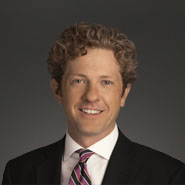Publications

Supreme Court Update: Snyder v. United States (No. 23-108)
Greetings, Court Fans!
Today, on what we now know is the penultimate day of the term, the Court issued three opinions, all of which are both big and split 6-3 on (mostly) ideological lines:
- In Loper Bright Enterprises v. Raimondo (No. 22-451), decided along with Relentless, Inc. v. Department of Commerce (No. 22-1219), the Court overruled Chevron v. Natural Resources Defense Council (1984), holding that courts alone have the authority to decide whether an agency acted within it statutory authority and cannot defer to agencies’ interpretations of ambiguous statutes. From a practical standpoint, Loper Bright is likely to be the most consequential decision of OT23, though where and how that impact will be felt most is subject to debate;
- In City of Grants Pass, Oregon v. Johnson (No. 23-174), the Court held that that an Oregon city’s criminal “camping ban,” which prohibits homeless people from sleeping in public spaces, does not amount to cruel and unusual punishment in violation of the Eighth Amendment;
- And in Fischer v. United States (No. 23-5572), the Court held that the obstruction-of-justice statute used to prosecute many of the January 6th defendants requires the Government to prove that a defendant tried to impair the availability or integrity of records or evidence used in official proceedings (here, Congress’s certification of Electoral College results) and not simply that the defendant tried to hinder the proceedings themselves.
Right after issuing these opinions, the Court announced that Monday will be its last day of the term. So by late Monday morning, any questions you have about the outcome of the Court’s remaining cases—like whether Trump is immune from criminal prosecution for his role in January 6th—will be answered.
To tide you over, we have a recap of one of the more interesting under-the-radar decisions from earlier in the week, Snyder v. United States (No. 23-108), where a 6-3 Court held that a federal law criminalizing bribery of state and local officials does not extend to an official’s acceptance of a gratuity for their past official acts.
Snyder begins in the city of Portage, Indiana, population 38,000. In 2012, James Snyder entered office as Portage’s mayor after running on a campaign platform that included automating trash collection. He soon put one of his friends in charge of the bidding process for city contracts, despite his friend’s inexperience administering public bids. On several occasions, Snyder’s friend tailored bid specifications to favor Great Lakes Peterbilt, a truck dealership owned by two brothers who had been in contact with Snyder. In 2013, with Snyder’s support, the city awarded the dealership two contracts worth $1.1 million in exchange for five trucks. Shortly after the second contract was awarded, Snyder visited the two brothers at the dealership with a request: “I need money.” After Snyder asked for $15,000, the dealership cut him a check for $13,000.
Federal investigators suspected the payment was a gratuity for the trash-truck contracts. And while Snyder said that the payment was related to consulting work he did for the dealership, Peterbilt employees later testified that Snyder performed no such work, and there were no written agreements, work product, evidence of meetings, invoices, or other documents relating to Snyder’s supposed consulting services. Instead, as the dealership’s controller later testified, Snyder was paid for an “inside track.” He was soon charged and convicted by a federal jury with accepting an illegal gratuity—the $13,000 check from the dealership—in violation of 18 U.S.C. §666(a)(1)(B).
Section 666(a)(1)(B) imposes criminal penalties on a state or local official who “corruptly solicits or demands for the benefit of any person, or accepts or agrees to accept, anything of value from any person, intending to be influenced or rewarded in connection with any business, transaction, or series of transactions of such organization, government, or agency involving any thing of value of $5,000 or more.” On appeal, Snyder argued that Section 666 does not criminalize gratuities like the one he received. The Seventh Circuit disagreed and affirmed his conviction, but because that decision conflicted with decisions from other circuits, the Court granted certiorari.
In a 6-3 decision joined by the Court’s conservative justices, Justice Kavanaugh reversed the Seventh Circuit, holding that Section 666(a)(1)(B) prohibits state and local officials from accepting bribes but not gratuities. He began by observing the traditional distinction between bribes and gratuities: Bribes are payments made or agreed to before an official act to influence the official as to that future act, while gratuities are payments made after the official act as a token of appreciation. A little tip, one might say, for a job well done. That distinction is important because lots of commonplace—and entirely innocuous—courtesies could be characterized as gratuities. Think of a holiday tip for your mail carrier or a year-end gift basket for your child’s public-school teacher. For this reason, American law generally treats bribes as inherently corrupt and unlawful but allows more leeway for gratuities, choosing to regulate them instead. One sign of this distinction is the far more severe penalty under federal law for federal officials who accept bribes (up to 15 years of imprisonment) in comparison with the penalty for federal officials who accept unlawful gratuities (up to 2 years of imprisonment).
Justice Kavanaugh then discussed six reasons why Section 666(a)(1)(B) is better read as limited to bribery and doesn’t extend to gratuities. The first reason was its text: Section 666(a)(1)(B) more closely resembles the anti-bribery statute applicable to federal officials found in Section 201(b), not the anti-gratuities statute at Section 201(c), because (like 201(b)) it requires the official to act “corruptly.” Second was statutory history: An amendment to Section 666 in 1986—two years after it was enacted—reflected Congress’s intent to eliminate language that might criminalize receiving gratuities. Third was statutory structure: No other statute—apart from arguably 18 U.S.C. §215(a)(2), which the Court has never interpreted—criminalizes bribery and gratuities with the same provision. Fourth was the punishments involved: Reading Section 666 to prohibit gratuities would mean that state and local officials are subject to ten years of imprisonment for accepting an unlawful gratuity, while similarly situated federal officials would face only a two-year statutory maximum. Fifth was federalism: Extending Section 666 to gratuities would infringe on widespread state and local regulation of gratuities, including regulations that permit officials to accept them under certain circumstances. And finally there was fair notice: A broad interpretation of the statute might snare unwary state and local officials, making it felonious—to use the Court’s examples—for a trash collector to receive a $100 Dunkin’ Donuts gift card or a college professor to go to Chipotle with her students for an end-of-term celebration.
With these six points having settled matters, Justice Kavanaugh then dismissed the Government’s argument (adopted by the dissent) that the word “rewarded” in Section 666(a)(1)(B) prohibits the acceptance of a gratuity. He noted that the word “rewarded” is also used in other anti-bribery statutes and that its purpose in Section 666 was to close off certain defenses in bribery cases. For example, the term “rewarded” allows the Government to prove bribery where a defendant agrees to receive a benefit before an official act but does not actually receive that benefit until after the act has been performed. Finally, Kavanaugh concluded by noting that if Congress really wished to broaden federal criminal liability to local officials’ receipt of gratuities, it “can always change the law.”
Writing only for himself, Justice Gorsuch concurred to note a seventh reason for reading Section 666(a)(1)(B) narrowly: The rule of lenity. In his view, “any fair reader of this statute would be left with a reasonable doubt about whether it covers the defendant’s charged conduct.” In such circumstances, “judges are bound by the ancient rule of lenity to decide the case as the Court does today, not for the prosecutor but for the presumptively free individual.”
Justice Jackson, joined by Justices Sotomayor and Kagan, dissented. In their view, the majority’s reading ignored the plain text of the statute, which applies to conduct, like Snyder’s, where a state or local official corruptly accepts payments intending to be influenced or rewarded for his official actions. Ordinary definitions of “reward” include accepting “payment in recognition of an action that an official has already taken or committed to taking” without any need for a quid pro quo in advance that would make such an action a bribe. Jackson also noted that there are other statutes that use the word “reward” similarly, that is, to prohibit accepting a gratuity in the absence of a quid pro quo. But even if the text were ambiguous, Jackson pointed to two additional pieces of evidence showing that Congress understood it to prohibit the acceptance of a gratuity: First, Section 666 clearly applied to both bribes and gratuities before 1986, and while Congress amended the statute in 1986 (a fact the majority relied on), it described those amendments as “technical and minor.” And second, the language Congress added in 1986—prohibiting acceptance of a benefit “intending to be influenced or rewarded”—was identical to language Congress included in a statute enacted about the same time, 18 U.S.C. §215, which Congress expressly described as encompassing gratuities.
Finally, the dissenters criticized the majority for eschewing the Court’s traditional incremental approach based on possible future cases. In their view, Snyder’s was an “easy” case involving local official who accepted a reward with obviously corrupt intent. And they rejected the majority’s hypotheticals as far-afield: Section 666 had nothing to do with “teachers accepting fruit baskets, soccer coaches getting gift cards, or newspaper delivery guys who get a tip at Christmas” because the elements required by the statute—including the requirement to accept a gift or payment “corruptly” in connection with only certain kinds of official business—“collectively do the nuanced work of sifting illegal gratuities from inoffensive ones.” To the extent the majority believed the ordinary reading of the statute resulted in over-criminalization, that concern is better addressed by Congress.

